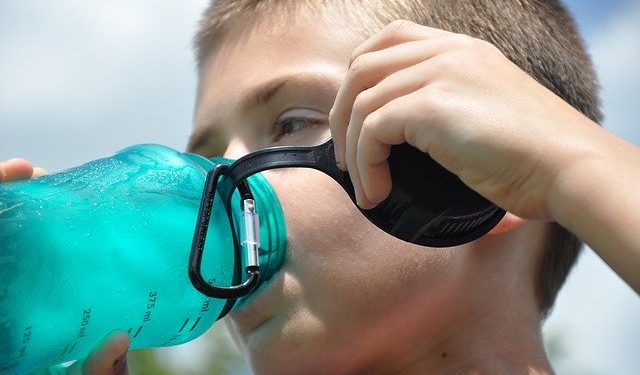By Sue Wilson, MA, ATC/L, PES, CHHC
Many different factors affect the everyday function of the brain. Research has shown that dehydration has several negative neurological and psychological effects. But did you know that hydration is critical to brain function? That’s one more reason to make proper hydration a daily priority.
Every cell of the body depends on water to help perform hundreds of chemical reactions and balance metabolites. When cells of the body become dehydrated, the entire body is affected, from muscle contraction of the legs to memory to emotions to rapid hormone changes.
Several studies have identified a link between those who have suffered a TBI and dehydration. People often don’t realize how much water humans need daily for our bodies to perform all the functions necessary to move, walk, talk, think, see, and taste.
A 2015 study conducted at London’s Loughborough University found that driving while dehydrated can be extremely dangerous. Volunteers committed a significantly greater number of errors, such as lane drifting and late braking, in a two-hour driving simulation when they “drove” dehydrated. Volunteers’ performance on the driving tests were just as poor as those who completed similar tests while driving at the legal limit for blood alcohol content.
The likely reason is that dehydration reduced concentration and reaction time. Other studies have proven over time that dehydration can cause decreased cognitive function, motor skills, memory, coordination, and can produce unwanted emotions and even make you more sensitive to pain.
When a brain injury occurs, the inflammatory process is activated and remains activated until we can get the body balanced. Proper hydration is one way to help balance the body. Humans needs different amounts of hydration due to the differences in body mass. Our bodies require half of our body weight in ounces of water to daily generate all the reactions and functions of our organs. For example, someone weighting 250 pounds should drink at least 125 ounces of water a day. Notice that I said water, not fluids. Our bodies need water. Take your weight and divide it by two for the total ounces of water you need to drink every day.
Your liver detoxifies every morning from 1-3am so the water you consume in the morning will help support the liver in flushing out all the toxins from the previous day. Water helps to flush the organs, replenish the blood, and balance any inflammation in the body. Upon waking every morning, everyone should drink between 10-20 ounces of water before they do anything else. Keep your water bottle or cup out in the open by your bed or in the kitchen so it is a friendly reminder every morning.
Once you find the target amount of water you need to consume every day, start slowly to increase the amount every morning and throughout the afternoon. Your total ounces in water should be consumed by 4pm so the fluids don’t disrupt your sleep pattern. If you quickly increase your water intake, you will find yourself in the bathroom often because your body can’t adapt to rapid absorption. Therefore, slowly increase your fluid ounces over a couple weeks.
Sue Wilson received her master’s degree in Exercise Physiology from Minnesota State University, Mankato. She is a Certified Holistic Health Coach, a Certified Athletic Trainer, and a loving mother of two. She’s on the board of directors for CTE Hope, and is dedicated to helping improve the lives of those who have been affected by concussion and brain injury.











